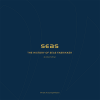The Invisible Constitution of Politics: Contested Norms and International Encounters
As social practices now frequently extend beyond national boundaries, experiences and expectations about fair and legitimate politics have become increasingly fragmented. Our ability to understand and interpret others and to tolerate difference, rather than overcome diversity, is therefore at risk. This book focuses on the contested meanings of norms in a world of increasing international encounters. The author argues that cultural practices are less visible than organisational practices, but are constitutive for politics and need to be understood and empirically ‘accounted’ for. Comparing four elite groups in Europe, Antje Wiener shows how this invisible constitution of politics matters. By comparing individual interpretations of norms such as democracy and human rights, she shows how they can mean different things, even to frequently travelling elite groups.
• Addresses the problem of norms and the way they are interpreted from an international relations theory perspective • Explores how norms work and discusses their impact on politics in contexts beyond the level of the state • Argues that diversity should be maintained rather than overcome so as to warrant legitimate governance beyond the state
ContentsPreface; 1. Introduction; Part I. Three Theoretical Moves: 2. Constitutionalism beyond modernity; 3. The dual quality of norms; 4. Making normative meaning accountable for international relations; Part II. Case Study: Reconstructing the Structure of Meaning-in-Use: 5. Citizenship; 6. Democracy and the rule of law; 7. Human rights and fundamental freedoms; Part III. Evaluation: 8. Deriving a working hypothesis; 9. Incorporating access to contestation.
Reviews\'This book compellingly demonstrates the importance of extending political analysis from attention to formally endorsed norms to a focus on the practical understanding of such norms, and the factors that govern their interpretation within the wider field of political activity. In making this case, Antje Wiener establishes a fundamental research agenda for future studies of the constitutionalisation of European and global politics.\' David Owen, Professor of Social and Political Theory, University of Southampton
‘Wiener\'s Invisible Constitution challenges scholars of law, politics and international relations to look beyond the surface of what they see when they study constitutions and constitutional quality beyond the state. Based on extensive empirical research into how officials and other actors interpret and apply norms in transnational contexts, Wiener\'s work will contribute in significant ways to our understanding of core constitutional norms of non-state entities such as the European Union.’ Jo Shaw, Salvesen Chair of European Institutions and Co-Director of the Europa Institute, Edinburgh Law School
- Forlag: Cambridge University Press
- Kategori: Samfunn/politikk
- Lagerstatus: Ikke på lagerVarsle meg når denne kommer på lager
- Antall sider: 272
- ISBN: 9780521895965
- Innbinding: Innbundet











